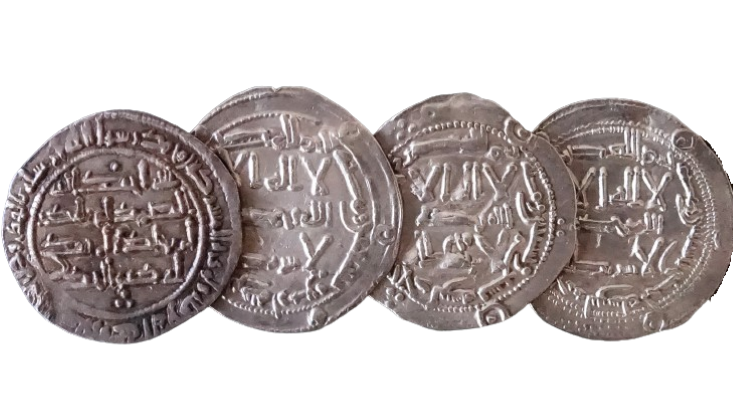Webinar on Islamic NumismaticsISLAMIC COINS AS DOCUMENTS FOR POLITICAL HISTORY AND ADMINISTRATIONwith Prof. Dr. Stefan Heidemann
17 October 2024

Photo: RomanIslam Center
- Time: Thursday, 4-6pm, Every two weeks
- Date: First session October 17, 2024
Last session January 23, 2025
This webinar is also part of the "Webinar Initiative in Islamic Material Culture" jointly organized by the Universität Bonn (Bethany Walker), the Ludwig-Maximilian-Universität in Munich (Andreas Kaplony), the New York University (Abigail Krasner Balbale), and Universität Hamburg (Stefan Heidemann). See: https://www.islamic-material-culture.uni-hamburg.de/ .
Course description
Islamic coins are the most prolific epigraphic sources in the Middle East for pre-1500 history. In difference to their likes in the Hellenistic-Roman, South Asian, and East Asian tradition, they are veritable documents with up to 150 words on them, usually dated and with a place of manufacture (mint), These serially produced documents mirror administrative practices and are a source for political and economic history. Nevertheless, their potential for understanding of urban or regional history is often neglected, even in comparison to other material sources, such as ceramics, pottery, and written artefacts, such as manuscripts, This course is designed to introduce historians and archaeologists to the main issues of working with Islamic coins and coins finds.

Photo:S.Heidemann
After an introduction of into the terms and terminology of the objects, we discuss the legal position of coins in Islamic law, to understand its economic impact. Then we arrive at the administrative level, how can we read administrative practices from the sequence of coin documents. At the end we go wild, coins as practice of fraudsters, and as products of rebels, freewheeling miners, and merchants who stand outside the well-regulated administration. For the last chapter we look at early Islamic North Africa. The classes allow also to present an ongoing numismatic study by the participants.
Requirements
Based on the literature, every class starts with an input by the docent followed by a discussion. The requirements for this webinar are:
- Attendance – Regular attendance, active participation, and preparations of weekly reading assignments is expected of all attendees.
- Readings – All participants will have read and prepared all readings for that week before the Thursday class meeting. Reading load averages 2-3 articles or book chapters per week. These will be sent to each of you via WeTransfer before the semester begins. For students in Hamburg, they are available on Open-Olat.
- Presentations – There will be an option for a 15-minute Power Point presentation on a case study of your choice (during the class we cover that general topic). Please clear the subject of your presentation with me, though, before the end of the first week of classes.
Registration:
As there is only a limited number of places available , applicants from the four universities of the Webinar Initiative in Islamic Material Culture will be preferred (U Bonn, LMU, NYU, UHH).
Please sent an application including your CV and a motivation letter to ensar.sinani@uni-hamburg.de(stefan.heidemann"AT"uni.hamburg.de)
Application deadline is October 15, 2024.
